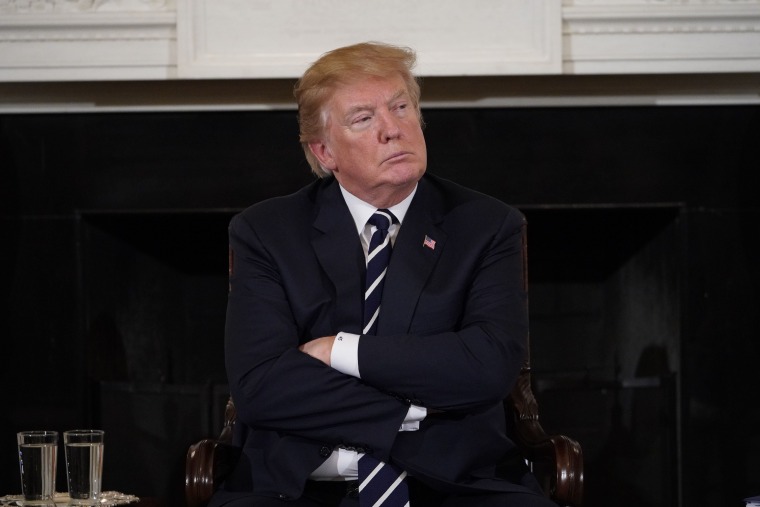Congressional Republicans aren't at all eager to pass meaningful gun measures, which is one of the reasons the right is so upset about Donald Trump's discussion at the White House yesterday: the president explicitly endorsed a "comprehensive" approach.
But it's worth pausing to appreciate exactly what Trump said and why.
"I like that word, comprehensive," Trump said. "They say it is a bad word. I like the word. I would rather have a comprehensive bill. ... It would be really nice to create something that's beautiful."
The president was being quite literal. It's not that he likes the component elements of a comprehensive bill on gun safety; rather, he likes the word "comprehensive" as a branding label he can apply to legislation.
In fact, earlier in the same meeting with senators yesterday, Trump made clear he has preferences when it comes to bill names. He noted pending legislation on improving the NICS database, and added, "It would be nice if we could add everything on to it and maybe change the title, all right? The 'U.S. Background Check Bill' or whatever."
Because for this president, the title of the proposal is no small matter. He seemed to lack even a rudimentary understanding of the policies at hand, but what a bill might be named captured Trump's attention.
This might be less jarring if it weren't so common. During the debate over the Republican tax plan, Trump referenced something called a border adjustment tax, which some GOP leaders intended to use to help pay for the package. "Anytime I hear 'border adjustment,' I don't love it," the president said.
As we discussed at the time, that led many to believe the White House was, at best, skeptical of the idea, but that wasn't quite right. Trump was being literal: when he heard the words "border adjustment," he didn't like it, not because he doubted the policy on the merits, but because he wasn't comfortable with the phrase itself.
The same is true on immigration: the president has been at his most animated when making the case against using the word "Dreamers" -- not on policy grounds, but because he worries that the word itself has a public relations potency.
The problem even arose during the health care fight. At one point in early March, Trump and House Speaker Paul Ryan spoke about the GOP's prooposal, and the president said he had had a problem: Ryan had used the word "buckets" to describe the additional steps of reform that would follow the initial legislation. "I don't like that word buckets," Trump reportedly said, preferring "phases."
The House Speaker obliged, but the anecdote was telling. Trump's focus was on branding and sales pitches, not substance. As yesterday helped make clear, this hasn't changed.
A year ago this week, Trump boasted at a meeting with business leaders, Trump "I'm good at branding." That may be true, but is he good at anything else?
